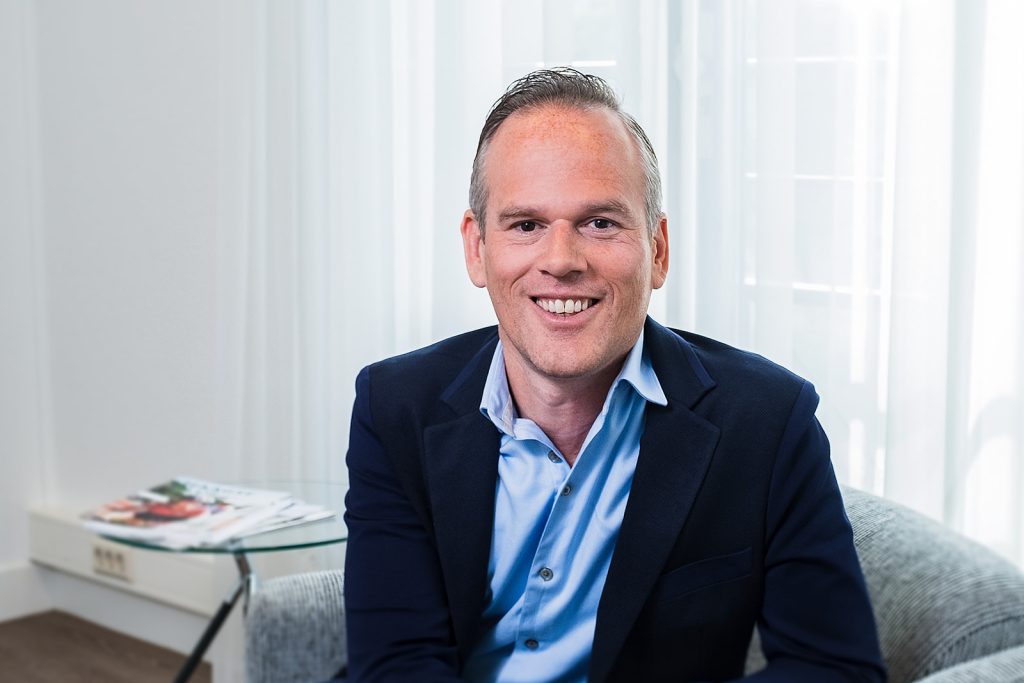Join the growing field of validation engineering. Discover what validation engineers do, where they work, what skills they need, and how TailorMinds can help you land your next job.
Table of Contents
What is a validation engineer?
A Validation Engineer is a technical specialist who ensures that systems, equipment, processes, and software used in manufacturing—particularly in the pharmaceutical, biotech, and medical device sectors—are properly installed, operate correctly, and produce consistent, high-quality results. These professionals are essential in ensuring that products are safe for use, meet regulatory requirements, and perform as intended. Validation Engineers work at the intersection of quality assurance, regulatory compliance, and process engineering and, ultimately, patient safety. Their work involves close collaboration with multiple departments and requires a deep understanding of both technical systems and regulatory frameworks.
What does a validation engineer do?
Validation engineers are responsible for ensuring that processes, equipment, and systems comply with industry standards and are capable of producing safe and effective products. Their daily tasks go beyond simple testing. They are involved in strategic planning, protocol development, technical assessments, and cross-department collaboration. Some of their primary duties include:
- Validation Protocols: Developing and executing validation protocols (e.g., Installation Qualification (IQ), Operational Qualification (OQ), and Performance Qualification (PQ)) to assess equipment and processes.
- Documentation: Preparing and reviewing validation documents, including validation master plans, protocols, and reports to ensure regulatory compliance.
- Risk Assessment: Conducting risk assessments to identify potential issues in processes or equipment and recommending mitigation strategies.
- Regulatory Compliance: Ensuring all processes adhere to regulatory guidelines set forth by agencies such as the FDA (Food and Drug Administration) or EMA (European Medicines Agency).
- Collaboration: Working closely with other departments, such as quality assurance, production, and engineering, to implement validation strategies and resolve any quality issues.
- Training: Educating staff on validation processes and compliance requirements to foster a quality culture within the organization.
- Continuous Improvement: Participating in ongoing optimization of processes to enhance efficiency, reduce waste, and enhancing quality assurance.
Overall, a validation engineer plays a crucial role in maintaining the integrity of pharmaceutical products, ensuring patient safety.
Types of validation jobs
Validation engineering is a diverse field that includes several areas of specialization. Depending on the industry and project requirements, validation engineers may focus on different technical or regulatory domains. Below are the most common types of validation jobs:
Equipment Validation
This area involves qualifying production or laboratory equipment, such as autoclaves, mixers, and HVAC systems. The engineer ensures that the equipment is correctly installed (IQ), operates as intended (OQ), and performs reliably under real-world conditions (PQ). Equipment validation is often the foundation of a compliant manufacturing environment.
Process Validation
Here, the engineer focuses on the manufacturing process itself, ensuring it consistently produces products that meet specifications. This often includes statistical analysis, process capability studies, and continued process verification (CPV). Process validation plays a vital role in ensuring product safety and uniformity.
Cleaning Validation
A critical role in preventing cross-contamination, cleaning validation demonstrates that cleaning procedures effectively remove product residues to acceptable levels. It involves sampling, analytical testing, and a thorough understanding of contamination risks.
Software Validation / CSV (Computer System Validation)
In the age of digitalization, software validation has become increasingly important. Engineers validate GxP-regulated software systems like LIMS, MES, or ERP, ensuring they perform according to predefined specifications and comply with standards like 21 CFR Part 11.
Facility and Utility Validation
This type focuses on cleanrooms, HVAC systems, water for injection (WFI), reverse osmosis systems, and compressed gases. Engineers ensure these facilities are qualified and perform consistently to maintain the environmental standards needed for product safety.
Packaging Validation
Proper packaging protects the product throughout its lifecycle. Packaging validation ensures that materials and systems maintain product integrity, prevent contamination, and meet transportation and storage requirements. This includes stability testing, container-closure integrity tests and trasport simulation.
Analytical Method Validation
Analytical methods used in labs must be accurate and reproducible. Validation engineers assess these methods for accuracy, precision, specificity, and robustness. This ensures reliability in product testing and release. This is very common in QC labs and R&D envrionments.
Thermal Mapping and Cold Chain Validation
In industries like pharma and food, maintaining temperature-sensitive environments is essential. Validation engineers conduct thermal mapping of cold storage units and transport systems to ensure safe and compliant handling of sensitive goods.
Required skills & qualifications
A successful validation engineer blends technical know-how with regulatory understanding and strong communication skills. The requirements can vary by company or role, but common qualifications include:
Educational Background
Most roles require at least a Bachelor’s degree in a relevant technical field such as:
- Mechanical Engineering
- Chemical Engineering
- Biomedical or Electrical Engineering
- Industrial Engineering
- Biotechnology or Pharmaceutical Sciences
A Master’s degree or specialization in regulatory affairs or validation is often preferred for senior roles.
Technical Knowledge
- Understanding of Validation Principles:
- IQ, OQ, PQ
- Risk assessments (e.g. FMEA, HAZOP)
- Knowledge of Standards and Guidelines:
- GMP
- GAMP 5
- FDA 21 CFR Part 11
- ISO standards
- GxP training or CSV-specific certifications
- Familiarity with Equipment/Process e.g.:
- Cleanroom validation
- Sterilization Validation
- Computer System Validation (CSV)
- Process Validation
Soft Skills
- Strong documentation and writing skills
- Attention to detail
- Problem-solving and analytical thinking
- Ability to work cross-functionally (QA, R&D, production, regulatory)
- Communication skills, including stakeholder management
- Human qualities: like being a good listener, a coordinator between different departments with different objectives, good timing skills, strong convincing/persuading/negociating skills.
Certifications (optional but beneficial)
- ISPE certifications (International Society for Pharmaceutical Engineering)
- Lean Six Sigma (especially in process validation)
- PMP (Project Management Professional) – if managing validation projects
- Experience with Change Control and Deviation Management
- Experience with validation software tools (like ValGenesis, MasterControl) is a plus.
Career paths & Growth opportunities
Validation engineers have excellent prospects for career advancement. As their experience grows, they may transition into more strategic, managerial, or specialized roles.
- Senior Validation Engineer: Taking on more complex validation projects, leading teams, and overseeing the validation process for larger equipment or systems.
- Validation Manager: Managing a team of validation engineers, developing validation strategies, and ensuring compliance with regulatory standards across multiple projects.
- Quality Assurance (QA) Specialist/Manager: Transitioning to roles focused on quality systems, auditing, and compliance management in pharmaceutical manufacturing.
- Consultant: Providing expert validation services to pharmaceutical companies on a contract basis or as part of a consulting firm.
- Training and Development: Focusing on training new employees on validation protocols and regulatory compliance, developing training materials, and conducting workshops.
As they advance in their careers, validation engineers can also consider roles in related fields such as biotechnology, medical devices, or other regulated industries where validation expertise is essential. Continuous professional development, such as obtaining certifications in quality assurance or project management, can also enhance career opportunities.
Working as a validation engineer in The Netherlands
Industry Presence
The Netherlands is a hub for life sciences, biotechnology, and high-tech manufacturing, making it a significant location for validation engineering roles. Industries that heavily employ validation engineers include: Major sectors include:
- Pharmaceuticals
- Drug formulation and manufacturing
- Clinical trial management
- Regulatory compliance and documentation
- Medical Devices
- Implantable device design and manufacturing
- Diagnostic equipment development
- Quality assurance and regulatory testing
- Biotechnology
- Bioprocessing and fermentation technology
- Genetic engineering and cell therapy development
- Biologics production and purification
- Food and Dairy
- Food safety and quality control
- Product innovation and formulation
- Supply chain and logistics management
- High-tech Systems
- Semiconductor fabrication processes
- Nanotechnology development
- Precision engineering and automation
Job Market & Demand
There is a consistently high demand for validation professionals, particularly those with experience in GMP-compliant environments and software validation. As regulations evolve and automation increases, the need for skilled engineers continues to rise.
Regulatory Environment
Validation engineers in The Netherlands must be able to operate under:
-
- EU GMP guidelines
- EMA (European Medicines Agency) regulations
- Dutch regulatory body (IGJ – Inspectie Gezondheidszorg en Jeugd)
English is the working language in most companies, especially in pharma. Dutch is helpful but not always required.
Future Outlook
-
- Increasing emphasis on digital validation (e.g., paperless validation tools, CSV)
- Growth in biologics and cell & gene therapy sectors
- More AI and data-driven validation systems expected to emerge
Validation engineer salary
Salaries for validation engineers can vary significantly depending on factors such as education level, industry, specific technical expertise, and years of experience. In the Netherlands, the average monthly salary for a Validation Engineer typically ranges between €3,000 and €6,500 (gross).
Junior Validation Engineers who are just entering the field can expect to earn between €3,000 and €4,000 per month (gross). These roles often focus on learning the basics of compliance, documentation, and process qualification under the supervision of senior staff.
More experienced professionals, such as Senior Validation Engineers, can earn between €5,000 and €6,500 monthly (gross). These engineers are often responsible for leading validation strategies, managing teams, participating in audits, and interfacing with regulatory authorities.
Additional factors such as working in highly specialized fields (like Computer System Validation or biotechnology), holding advanced degrees, or acquiring industry certifications (e.g., ISPE, PMP) may further increase earning potential.
Moreover, some roles may include additional benefits such as travel allowances, flexible working conditions, and professional development budgets.
Why choose Tailorminds?
At TailorMinds, we connect validation engineers with top employers in The Netherlands and beyond. Whether you’re just starting or looking for your next challenge, we offer tailored support to help you grow. Our services include:
- Personalized career guidance
- Access to exclusive job opportunities
- Support during onboarding and relocation
- Continued coaching throughout your assignment
We understand the nuances of the life sciences industry and help you match your skills to the right role.
Meet us!

Sander Pupella
Operations Manager

Peter Debrichy
Recruitment Consultant
FAQ
Pharmaceuticals, biotechnology, medical devices, food and beverage, and high-tech industries rely on validation engineers to ensure compliance and product quality.
Not necessarily. English is widely used, especially in international companies. However, Dutch can be an asset in local roles.
We offer tailored recruitment support, match candidates to suitable roles, and provide onboarding, relocation and development coaching.
Yes. Many validation engineers move into managerial or consulting roles after gaining experience and certifications.


